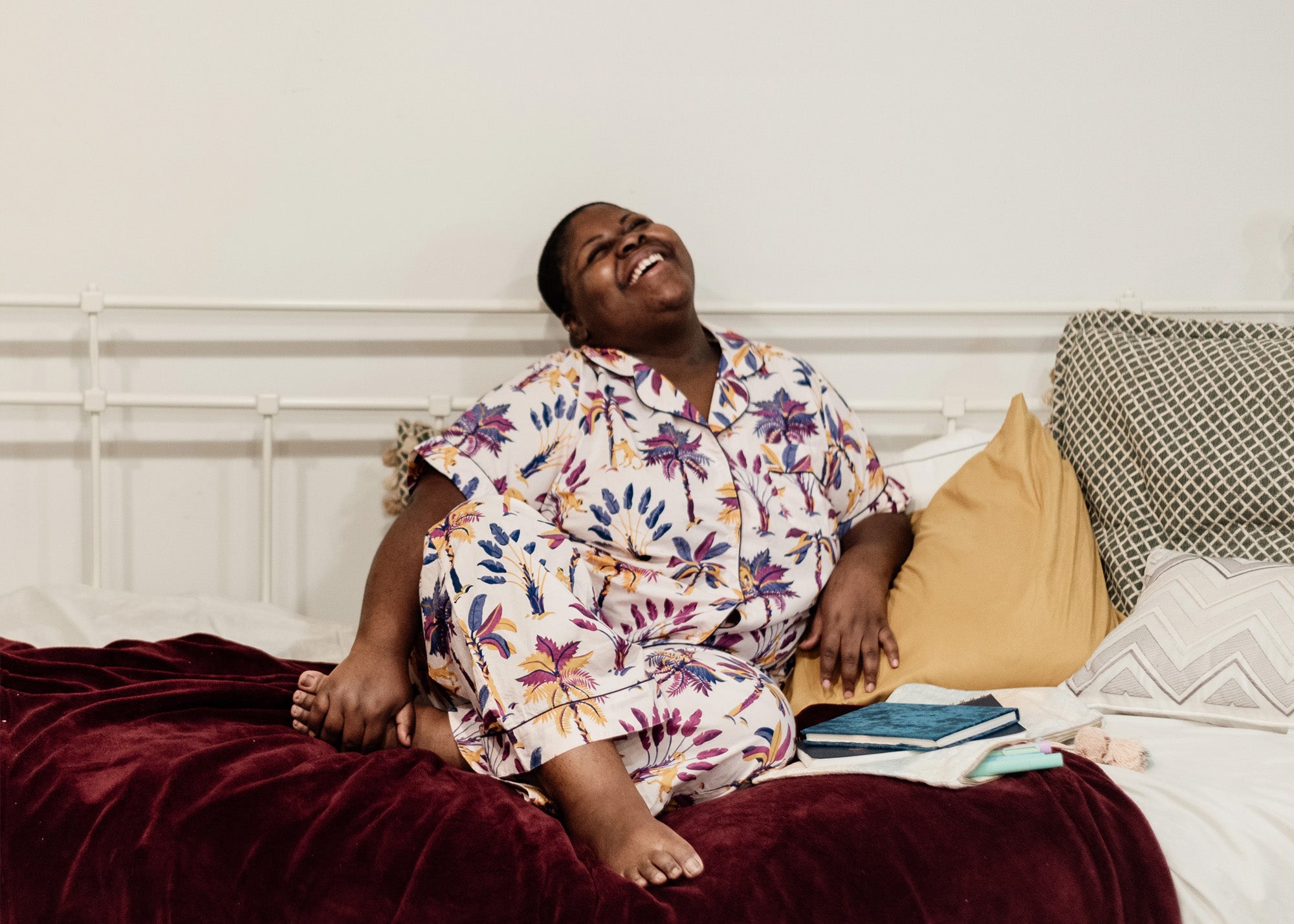Inspired By: Mare Leon
When I first stumbled upon your boudoir photography, I was so taken with the sincerity, playfulness, and celebratory sense in your work. How did you get the idea to start a boudoir studio and what does inclusivity mean to you in your work?
Well, it’s funny because I never intended to get into boudoir photography. I had always enjoyed doing landscape photography and had done some photography at Indie music shows throughout Philly, but never any boudoir. I was randomly invited to do a shoot once and modeled for a while before joining another studio. While I was learning the ropes, I recognized that I wanted to do more. I wanted to build out a much more intimate relationship to photography and the ways it was impacting me and those around me. This idea of inclusivity is exactly what had me thinking that something was missing - what even is inclusivity and is it actually achievable?
I’ve always been a little intimidated by the idea of doing a boudoir shoot - what advice do you have for a first time client?
Folks should know that trusting your photographer is important - do your research and feel good about who they are and how they do their work. Check out their online presence, read the captions, and make sure you feel like they align with you and the experience you want to have as much as possible. We share photos of ourselves, have gallery examples, a list of studio agreements posted up on the website, and are working through a trauma-informed lens to keep us accountable to upholding safer and braver spaces for folks to celebrate themselves.
I’d love it if you could tell me more about what body positivity and body neutrality means to you? Do you feel the terms are reserved for certain sizes or people or are these terms that all people should be using?
I could write a dissertation on this! Honestly, everyone should be body positive in the sense that everyone should be centering and uplifting marginalized people (in this case, especially fat Black women/femmes) whose bodies are what motivated this movement. Centering people doesn’t mean you cannot honor yourself. It means you should do your homework and recognize privileges along the way. Body positivity was a body justice movement that was meant to liberate Black fat women/femmes. It’s not necessarily the “feel good” hashtag that it has been cooped to be. Having a movement for confidence and body acceptance is great, but it’s also different from liberation work, and much of who you see in “body positive” spaces are not oppressed people.
Do you have thoughts on how straight sized folks can be better activists for the larger bodied community?
Generally, I would give the same advice for anyone who is outside of a group and/or have privileges that impact marginalized groups: do your research, listen, and sit with your discomfort. There’s a lot of noise about thin privilege and body positivity because people are too caught up in their own privilege and/or discomfort to listen in to other groups. Arguing with people who are doing the vulnerable, powerful, and necessary work of self-advocacy and calling out systems is further oppressing groups and proving their point about systems of oppression.
You’ve recently made a really interesting adjustment to your business by taking it on the road. I commend you for being so innovative and adjusting to this really tough time for small businesses. How did that idea come about and how was it?
The idea came from needing to shift a bit to fit the needs of our audience and from our sheer excitement to get out of the house, meet potential customers, other photographers, and explore new cities. We did just that and it was amazing to be able to find the connections we now have across states. I personally used to live in Austin and have gone back every year for the last 4 years so I was happy to go back to my home away from home. The drive itself was beautiful and challenging. Doing a southern tour before this contested election (especially as a Black person) was a process at times, but there is so much beauty in the land and people of the south. My faith was both restored and depleted. It’s hard to vocalize but I love that we did it.
Ok, let's go into some fun, easier questions to answer!
It’s like Zoom meetings and quick iced coffee! I am working to build a better rising routine but right now it’s a rush to get caffeinated and online!
My living room on my red velvet couch next to my lovely roommate and Sage, the divine pup.
Coffee all the way, but a warm black milk tea is a close second.
Does iced coffee count?
Stretching obnoxiously and random dance parties in my bedroom.
Heart Talk: Poetic Wisdom for a Better Life by Cleo Wade
Putting my phone on do not disturb, taking a nice steamy shower, and putting on comfortable pants.
It means everything from drinking enough water to ending relationships with folks to setting boundaries to watching Netflix to unwind!
Some of my favorite products are the Correct & Purge Facial Cleanser, Daily Eraser by Yadain Cultural Solutions and the evanhealy Pomegranate Repair Serum. I love to keep it simple!
Tough call - most of the time I’m barefoot, but cool weather makes slippers essential.
I’m literally binge watching The Flash and Supernatural on Netflix - and I said what I said.
*sips drink* 6-8 hours on my better days. I’m a bit of an insomniac.
Set my Alexa to play sleep sounds. I’m a big fan of a box fan sound.
Learn more about Mare on their Instagram, and read other installments of our Inspired By series on the blog.
All photos credited Devon Dadoly.

















0 comments